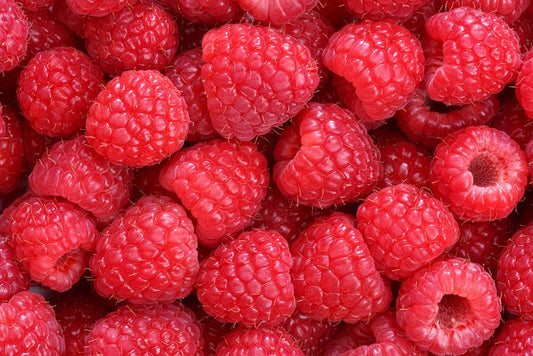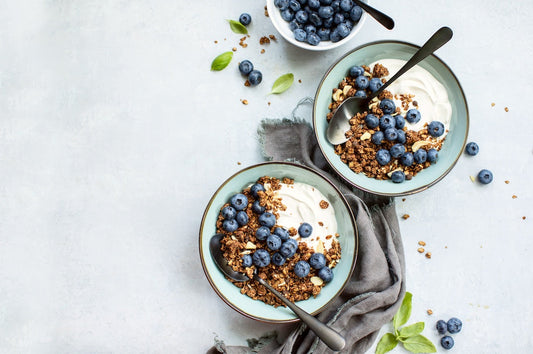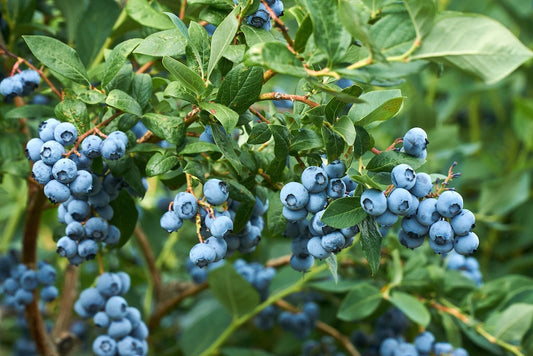Healthy eating has become one of the most important topics for many people. The body and health suffer from poor or incorrect nutrition. This is just as true for children. Due to the constant growth that children undergo, proper nutrition and the right nutrients are particularly important. In today's blog post, we will explain which nutrients are particularly important for children and what an optimal diet for children generally looks like.
Discover healthy breakfasts for children
This is what optimal child nutrition looks like
It is important for children to have an optimal diet because it provides the building blocks they need for everyday life. If children are very active and on the go, they need more energy and thus more calories.
However, the natural feeling of hunger normally regulates the amount of energy consumed by itself. Too much food is also fatal for children – they quickly become overweight, which is very unhealthy.
How to start with proper child nutrition
There are a few simple but important building blocks for a healthy and nutritious diet for children. Variety plays a major role here.
Children are very curious and always want to discover a lot! It's the same with food. You can try to conjure up many different meals for your children – different colors, consistencies, smells and tastes will lead to the desired success.
From around one year of age, children should definitely join the family at the dinner table. With the right preparation and in the right quantities, the normal family diet can meet the nutritional needs of every child – as long as the diet is varied.
There's no need for elaborate recipes or even calorie counting. Children's diets are often less complicated than you might think.
The basic building blocks for proper nutrition for children
Even though feeding children shouldn't be complicated, there are a few things you should definitely keep in mind.
Drinking enough is probably the most important part of feeding children. Water is best – at the very least, you should make sure that your child drinks unsweetened or sugar-free drinks. Added sugars are counterproductive, especially for children and their development.
Vegetables, fruit and grains – the 3 basic building blocks of proper child nutrition
You should also make sure that you include plenty of plant-based foods in the meals you prepare. Vegetables, fruit and grains – these 3 basic building blocks should be included in every meal. Even though children often shy away from “green stuff”, it is an important part of a healthy diet.
Animal-based foods are best offered in moderation. Meat, fish, eggs, milk and yogurt are not unhealthy, but please only in moderation.
You should also be a little more frugal when seasoning – children often have a different perception of salt than adults. Snacks, sweets and high-fat products should be avoided as much as possible. Of course, this is not always possible, but excessive consumption of sugar and other products can quickly lead to obesity and secondary diseases.
These foods should not be missing from any child's diet.
As we have already established, nutrition is very important for children to reach their full potential. But what foods should definitely be included in a child's diet?
Vegetables, legumes and fruit are the basic building blocks of a healthy diet. Five portions, as varied as possible, are a good starting point. For example, slicing an apple or maybe making an apple puree? The more variety, the better.
Cereals and potatoes are also important components of a balanced diet for children. Five portions of each are sufficient. Cereals, pasta, rice and potatoes taste very good and are very healthy!
Yoghurt, quark and cheese are important sources of calcium and should also be part of a proper diet.
Fish and meat should be on the menu, but not too often. For example, fish is enough twice a week. It should be oily fish such as salmon, mackerel, tuna or char. You can be even more frugal with meat. The rule is: it's better to leave it natural and not bread it.
Breakfast is particularly important for children
You should not skimp on breakfast, especially with children. Children's energy stores are depleted during sleep just like those of adults, and need to be recharged in the morning. If this does not happen, you will struggle with tiredness and low energy levels all day.
So it's easy to prepare cereals, yoghurt and milk in the morning. One of our delicious muesli, such as the Verival Bircher Muesli, not only tastes extremely delicious but is also very healthy. Based on the original recipe by Max Bircher-Benner, the Bircher Muesli contains a lot of nutrients and healthy ingredients!
These vitamins and minerals are particularly important
We have already explained which foods should definitely not be missing from children's diets. But which vitamins and minerals do they provide? And which ones are really essential?
Calcium
Calcium is a very important component of children's nutrition and is very important for bones and teeth. Children between the ages of three and six need 750 milligrams. This can be perfectly met with milk, for example.
Vitamins A, C, D and E
Vitamin A is important for growth and helps to sharpen the senses. Vitamin C helps to strengthen the body's natural defences, while vitamin D is just as important for bone and muscle development. Last but not least, vitamin E helps to protect the cells.
Magnesium, iodine
The body uses iodine to produce the thyroid hormone, which affects brain growth. Magnesium is important for bones and muscle development. Magnesium is best supplied in whole grains or dairy products.
Complex carbohydrates as an energy source in children's nutrition
Complex carbohydrates are not only important for adults, but definitely also for children. The saying, “Eat up so you'll grow big and strong,” is fundamentally incorrect, but when used, it is best to use it in reference to complex carbohydrates.
Porridge and muesli with whole grain cereals – the ideal breakfast for children
Simple carbohydrates can be found, for example, in refined sugar and should be avoided as much as possible. Complex carbohydrates are found in whole grain products such as muesli or porridge, as well as in vegetables and fruit. Oat flakes are also ideal for children and are wholegrain.
For a healthy children's breakfast from Verival
Carbohydrates are the energy supplier for children. With the right carbohydrates, you stay full for longer because complex carbohydrates are absorbed more slowly by the body. This means that blood sugar levels rise more slowly and you stay full for longer, avoiding food cravings.
3 healthy breakfast recipes for children's nutrition
And because a healthy breakfast should not be neglected, especially for children, we have three recipe ideas that are particularly suitable for children.
1. Warm porridge
Porridge or oatmeal is suitable for children of all ages. The oats or other grains it contains make it particularly easy to digest and provide the child with valuable plant-based proteins, complex carbohydrates and fiber. Porridge can be refined with various toppings such as fruits, nuts or seeds, making it the perfect breakfast for every day.
2. Cereal for kids
Muesli and overnight oats are real breakfast classics. They are so healthy that they are also ideal for children and can be prepared quickly. The best thing? Muesli and overnight oats are very versatile, so there's no chance of getting bored.
3. Healthy breakfast muffins
Healthy breakfast muffins or energy balls are the perfect choice when breakfast has to be quick or your child likes to have breakfast at school. They are quick to prepare and can be customized to your child's individual taste. It is important to use healthy ingredients here.

Breakfast Muffins with Cocoa and Banana
Ingredients
- 2 very ripe bananas
- 250 g Verival porridge cocoa banana
- 130 g wheat or spelt flour
- 1 pkg. baking powder
- 85 ml sunflower oil
- 135 g plain yogurt
- 80 ml milk optionally a plant-based drink
For Decoration
- 1 handful of Verival porridge cocoa banana
Preparation
-
Preheat the oven to 200°C (top/bottom heat). Line a muffin tray with paper liners.
-
Peel the bananas and mash them with a fork.
-
Add sunflower oil, yogurt, and milk to the mashed bananas and mix everything together with a whisk.
-
In another bowl, mix the wheat flour with the baking powder and the porridge.
-
Then, add the dry ingredients to the banana mixture and blend using a hand mixer.
-
Distribute the muffin batter into the paper liners and sprinkle some porridge cocoa banana on top.
-
Bake the muffins in the preheated oven (middle tray) for about 20 minutes.
-
Allow the muffins to cool down and enjoy them.
























